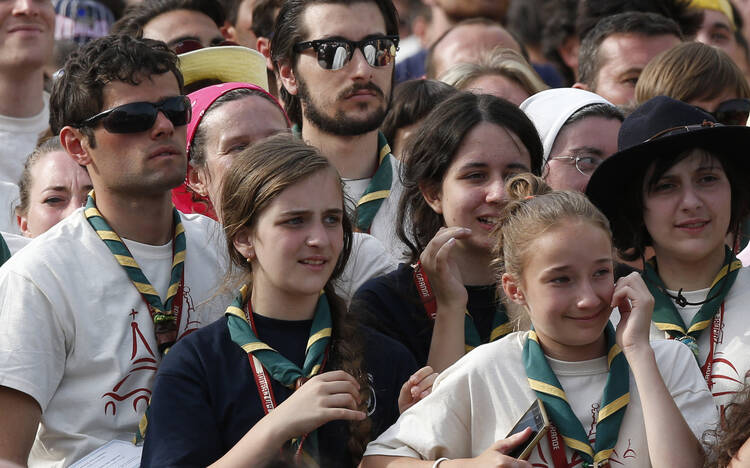We're a sucker for one-liners. It's proven practice that a provocative one-liner in a headline will attract page views, and therefore revenue, for websites. For example, last week President Obama gave an hour-long interview on Marc Maron's popular podcast, WTF. He spoke about growing up, poverty, and race among other things. However headlines fixated on one sentence, referencing Obama’s use of a racial slur.
While most followers of Pope Francis were focused on the news around his new encyclical, "Laudato Si'," he was able to strike headline-gold himself in a different, overlooked Q&A with young people in Turin.
Several blogs and articles were posted that cherry-picked an aside where Francis pointed out the inconsistency of the Christian identity of weapons manufacturers. Some were so bold to paraphrase it as "Pope Francis says Arms Manufacturers Cant Call Themselves Christian.”
Some have expressed frustration with Francis' “off-the-cuff” remarks. But to even call his remarks “off-the-cuff,” seems to imply they were made carelessly, and therefore little attention should be paid to them.
At the end of his remarks, Francis said, "I wrote something on your questions; but it’s not what I [just] said, this came to me from my heart." Maybe the remarks were off-the-cuff, but Francis' heart was on the sleeve.
Just as Obama's discussion on race relations, breaking the cycle of poverty, and the politics of Washington was lost in the controversy of a statement taken out of context, Francis’ remarks in Turin last weekend were left unappreciated.
Zenit recently published a translation of his address, but the Vatican’s video provides an even wider context to what Francis was saying and doing.
In the video you see three Italian youths, Chiara, Sara and Luigi, asking Francis questions about friendship, love, and life.
Chiara asks a question that resonates with so many of us, but especially young people: “Often we feel disappointed in love. In what does the greatness of Jesus’ love consist? How can we experience his love?”
(At the 25:30 mark in the video) Francis’ answer to her question moved me to tears. He says with passion, "[Love] is more in works than in words. It’s not love just to say: ‘I love you, I love all people.’ No. What do you do for love?"
Growing up is hard enough. As Taylor Swift puts it, “We're happy, free, confused, and lonely at the same time. It's miserable and magical.” But the Italians face an additional struggle, as youth unemployment there is higher than 40 percent.
It’s understandable that Sara asks about a "mistrust of life."
It’s one thing to read a headline about Pope Francis, another to read a transcript of a speech, but an entirely other thing to see him in action, in St. Peter’s Square or over the Vatican’s YouTube channel.
When you see Francis in the moment, you realize that he isn’t speaking carelessly, spouting off whatever first comes to his mind. His words are genuine, spoken slowly and chosen carefully. In Turin, he was speaking to a group of young people with so much potential, but who are tempted to become disillusioned with life.
When we take Francis in context, affirming, tending to wounds first before moving toward moral imperatives, we can better see his vision of the church. The field hospital ought to encourage all people, as Francis quoted Blessed Pier Giorgio Frassati, “To live, not to live poorly!”








